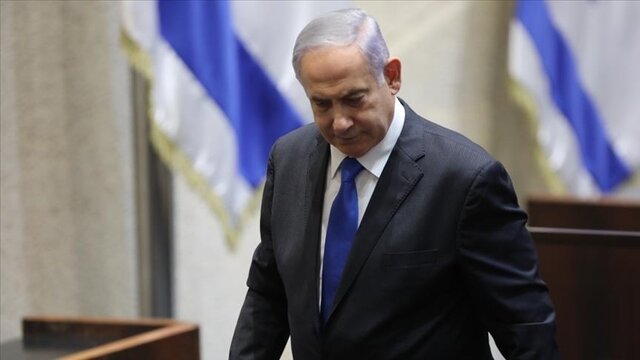The fifth parliamentary election of the Zionist regime in the past four years was held under the condition that the “Likud Party” led by “Benyamin Netanyahu” was able to win this round of the elections by winning more seats. Based on the counted votes, allies and parties leaning towards Netanyahu’s coalition won 69 seats. The opposite coalition led by the current Prime Minister Lapid won a total of 47 seats.
Netanyahu had previously announced that he would form a unified and completely right-wing government through a coalition with the “Religious Zionist Party” and the Orthodox “Shas” and the “United Torah Judaism” parties.
The success of the extreme rightists in this round of elections is not due to election campaigns and propaganda, which is mainly due to the expansion of the atmosphere of “rightism” in the political and social dimensions in the occupied Palestine, which smooths the process of the return of this radical spectrum, led by Netanyahu, to power.
The spread of extremism in recent years in the Zionist regime is to such an extent that in the days leading up to the elections, Knesset member Itamar Ben Gvir, who is known for his racism, violence and full-fledged hatred of Arabs and the Palestinians, was the first figure in the election atmosphere and in terms of winning Knesset seats, is in the third place! A person who has already started seeking shares and will definitely be the “Achilles heel” of Netanyahu’s possible cabinet.
Regarding the internal and external consequences of the victory of Likud and other aligned currents in the Knesset elections, various analyzes are proposed; some, by ignoring the interior of the occupied territories, assess the facilitation of Netanyahu’s return to power as a result of strengthening the Resistance Front’s anti-Zionist policies. At the same time, they consider the regaining of power of the extreme rightists in the Zionist regime to the detriment of Iran and the Resistance Front.
But the point to ponder is that anti-resistance political and media circles emphasize at the regional and international levels that Netanyahu’s return to power will strengthen pressures against Iran and the Islamic Resistance, reduce the bargaining power of the Islamic Republic of Iran in foreign policy, defeat negotiations to revive the Joint Comprehensive Plan of Action (JCPOA) and other regional negotiations, and complete consensus building against Iran!
This is while Netanyahu, in his 12 years as prime minister, which was the longest tenure of a person in the Zionist regime, did everything he could and needed to deal with Iran and the Islamic Resistance, but he failed to achieve the objectives and results that he followed!
The Islamic Republic of Iran has a “stable and unchangeable” strategy in facing and confronting the Zionist regime. The results of the ballot box in the Zionist regime have no effect on changing and revising the aforementioned strategy. In addition, in practice, there is no difference between Israeli figures, currents and parties in the approach of confronting the Islamic Republic of Iran.
Of course, Iran is not indifferent or unconcerned about the internal developments of the occupied territories, but has full knowledge of it. At the same time, it updates its anti-Zionist approaches and policies according to the new requirements and conditions. Therefore, the strategy of the Islamic Republic of Iran towards the Zionist regime is completely clear and it is never subject to the elections, formation of cabinets, etc. in the Zionist regime.
But here is a point to consider; the victory of the extreme and right-wing individuals and parties in the Knesset elections basically indicates the predominance of “crisis” and “extremism” in the occupied Palestine, which leads to nothing but strengthening the atmosphere of “insecurity and instability”.
Netanyahu is “born” in an atmosphere of crisis and insecurity that has spread due to the operation of the weapons of the Palestinian Resistance, especially in the past year in the occupied Palestine. This shows that its security has not been ensured in a situation where even the Biden administration is standing by Tel Aviv and some Arab compromise regimes have made friends with this racist regime, and the first issue is still the Zionist residents of the occupied lands!
Netanyahu’s return to power is, first of all, an alarm for the Zionist regime, because it will act like a cycle of reproducing the crisis in the occupied Palestine; considering the extreme anti-Palestinian and racist approaches of the extreme rightists such as Netanyahu or “Ben Gvir” who, regardless of regional and international sensitivities, firmly believe in the expansion of Jewish settlements in Baitul Muqaddas, the annexation of the West Bank, the violation of bilateral treaties and issues of this kind, the incitement and escalation of security and military faults in the occupied Palestine is not beyond expectation; an issue that will intensify the vulnerability and weakening of the Zionist regime.
“Dan Halutz”, former Chief of Staff of the Zionist regime’s army, said before the elections that ‘when Ben Gvir embarks on implementing his ideas, we will witness the start of a civil war!










0 Comments